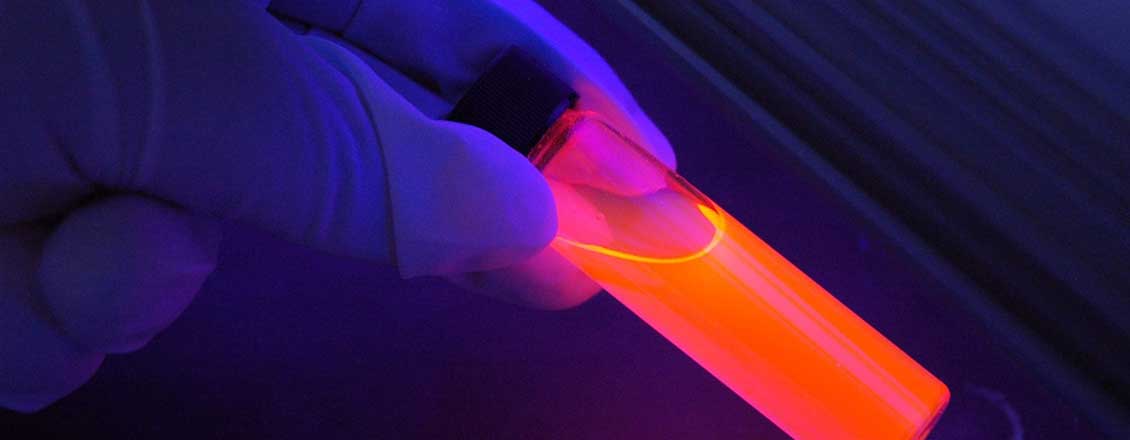
Letter from the Department Chair
A letter from the Department Chair of Chemistry and Biochemistry
Students who complete a major in the ESU Department of Chemistry & Biochemistry have strong opportunities for employment, graduate education and professional school (pharmacy, medical, dental). We are committed to providing high quality learning opportunities for our students, who have a proven track record of success.
Accreditation
Our program is approved by the American Chemical Society; our B.S. Chemistry graduates can individually be certified as having met ACS professional standards. Our interdisciplinary B.S. Biochemistry degree program has earned the rare distinction of accreditation by the American Society for Biochemistry and Molecular Biology. Biochemistry graduates earn their degrees from an accredited and can sit for an individual certification exam.
Graduate Study after ESU
Our alumni who pursue graduate study are admitted with full stipends to prestigious programs. ESU graduates have completed Ph.D. degrees from such highly ranked programs as Yale, Cornell, the University of Chicago, Purdue, Indiana, and many others. Several students have successfully completed highly competitive M.D. Ph.D. programs. ESU graduates have obtained international competitive post-doctoral positions and founded flourishing companies including BioSpectra Inc., OraSure Technologies and TB Biosciences.
Professional School
Students have used our majors as a springboard to medical, physician assistant and dental schools. We maintain agreements with pharmacy doctoral schools where a number of our pre-pharmacy graduates enroll.
Employment
Professional employment rates are greater than 90% post-graduation. Students completing the B.S. Secondary Education option commonly secure multiple teaching offers. Recent B.S. alumni in chemistry and biochemistry alike are working in a variety of regional industries: vaccine and drug manufacture; perfumes, fragrances, and flavorings; cosmetic formulating; gas purification; raw materials; and high-purity biochemical reagent production, to name a few. Many of our students participate in paying internships in these same enterprises while enrolled at ESU.
Student ACS Chapter
The ESU Chemistry Club provides a mechanism for students to present chemistry demonstration “magic” shows for children, make peer connections, pursue professional travel for conferences and tours, and exercise leadership roles. A wall of plaques documents the national recognition our chapter has earned year after year.
In the Lab
Our undergraduate students have hands-on access to an exceptionally modern and complete array of instrumentation. Unlike the experience of undergraduates at large universities, ESU students learn to operate the instruments as part of their laboratory classes and in research projects. By a combination of institutional and grant support, we maintain the instruments you have seen on current crime-lab TV shows: FTIR, NMR, AA, GCMS, GC, HPLC, LC/MS, PCR, Fluorescence and UV spectrophotometers.
In the Classroom
Our developmental approach poses achievable goals for our students at each level of the program. Student competence, autonomy, and communication skills progress to the professional level incrementally, and with the needed support. Freshmen begin using computerized instrumentation, and learn to document and present their work. Sophomores continue to become fascicle in the lab through learning to run organic reactions and analyze the products. Junior and senior majors work in teams to carry out and design experiments, create instrument driver sequences for hundred-thousand-dollar instruments, validate methods, and present full project reports orally, in written form, and via media. Our graduates leave ESU fully prepared to be successful in graduate or professional school or in their first entry into the workforce. From day one, every lecture and lab instructor that guides you through these transitions will be a graduate-degreed chemist, not a student teaching assistant.
Learning through Research
Students can gain research experience working with our faculty advisers during the academic year or summer. Faculty research is highlighted under each faculty profile.
Learning while Working
Students can earn money and deepen their understanding and improve their professional skills by working in the prep lab and stockroom with our technician or by serving as peer tutors or classroom assistants. Junior and Senior students commonly obtain paid internships during the academic year and summer with regional companies like Sanofi Pasteur, BBraun, BioSpectra Inc., and Vigon International.
Awards and support
Transfer students should contact Dr. Jones-Wilson to see if they meet the eligibility requirements for any of the dozens of scholarships awarded under a current National Science Foundation grant to study and enhance the transfer experience in chemistry, biochemistry, chemical biotechnology and other STEM disciplines. The department also annually awards two scholarships to top students in their sophomore or junior year.
Please contact me if you have further questions, or wish to discuss how majoring in chemistry, biochemistry, or chemical biotechnology would be a good fit for you. We look forward to working with you on your development as a professional scientist.
Dr. T. Michelle Jones-Wilson
Chair, Department of Chemistry & Biochemistry
Director Programs in Biological Chemistry
Contact Us
Contact Information
- Campus Address
- Science & Technology 223
- Phone:
- (570) 422-3342
- Fax:
- (570) 422-3908 (Fax)
- Title of Department Leader
- Department Chair
- Name
- T. Michelle Jones-Wilson
- E:
- mjwilson@esu.edu
- Phone:
- (570) 422-3703



